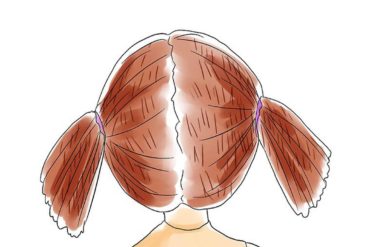A few days ago, a 17-year-old boy from Gurugram, in the National Capital Region (NCR) committed suicide after a girl accused him of molesting her through an Instagram “MeToo” post. The girl’s post came a day after the “Bois Locker Room” controversy erupted, where several schoolboys discussed sexual violence including gangraping women in an Instagram group. The girl in an Instagram post said that she was attacked two years ago and “was tired of keeping it a secret”. She described the alleged events and named the 17-year-old boy who allegedly committed the offence.
Post the boy’s suicide, his brother in an Instagram post shared their side of the story. According to him, “After her story got viral, Rohit (name changed) received threat calls and messages and was harassed by the girl and her friends after which he tried to defend himself and also told his friends that he is innocent but he couldn’t handle the constant threats and believed that his side of the story would not be heard. He was under tremendous pressure and had a panic attack and impulsively decided to commit suicide.”
Though I never knew the boy, I was deeply grieved about the death of the boy after I came to know about this incident and posted about the incident on social media. I take this as an example for why the due process of law must be allowed to take its course and how instant justice isn’t justice enough. After reading my post, a good friend of mine, who works as an assistant professor in a college, reached out to me expressing some of her concerns and why the girl’s action should not be blamed. Her concern was that official complaints don’t help at most times and hence people vent out by writing about it.
This conversation with my friend reminded me of the Telangana encounter case in 2019 where four men allegedly involved in the gangrape and murder of a 26-year-old veterinary doctor, was killed in a police encounter while in custody, a week after the rape and murder had happened. I vividly remember people cheering this incident and hailed it to be delivery of instant justice. What worried me most was many lawyers hailed the encounter and praised the Telangana police for delivering justice instantly.
Many who cheer encounter killings or extrajudicial killings do not realise the inherent dangers behind it. We do not know if the four people killed by the police were the actual persons who were responsible for the murder and rape of the young doctor. The police claimed they were rapists and murders; and they were shot down in an alleged encounter to please the people of the nation who were outraged about the gangrape incident. What if the police were not able to crack down the actual culprits and they framed and killed four people who were innocent? Tomorrow, you or me can be picked up from our homes, can be labelled a rapist or a murderer and can be shot down in an encounter if the police is given a freehand and there is no judicial system to keep a check and balance. I agree fully that our judiciary and justice delivery system are not foolproof but they are strong pillars of our democracy protecting our rights. They must be upheld for democracy to sustain.
Coming back to Rohit’s suicide, ideally the girl should have taken recourse to legal methods if he had committed an offence. She could have approached the police and got an FIR registered. Or if the police did not register a case, she could have made a private complaint before the concerned Magistrate Court, which would have directed the police to register the FIR and conduct the investigation. Instead she chose to vent her story on social media and publicly shame the boy which eventually resulted in his suicide. If the police or authorities don’t take action, a concern expressed by my friend, the courts are the place we need to resort to and not social media. If she had at least made a formal complaint to the police and then wrote about her issue with the complaint lodged, it would have made some sense.
In 2015 Jasleen Kaur, a former St. Stephens College student, shared a Facebook post where she accused one Saravjeet Singh of verbally harassing her at the Tilak Nagar traffic signal in West Delhi. She accused him of being a ‘pervert’ and ‘eve teaser’. The incident made headlines across the country and everyone from Sonakshi Sinha to Arvind Kejriwal applauded the girl. Shockingly, a Division Bench, of the Delhi High Court, too, applauded the woman for standing up to the man who allegedly abused her.
As per the Bar Council of India’s rules, an advocate shall defend a person accused of a crime regardless of his personal opinion as to the guilt of the accused. The rule further mandates that an advocate should always remember that his loyalty is to the law, which requires that no man should be punished without adequate evidence. When an advocate is expected not to judge the guilt of his client, a judge is expected to be fair and reasonable. It was quite unfortunate that the Division Bench expressed its personal opinion before the trial court proceedings even began.
After a four-year trial, Sarvajeet was acquitted. It has to be noted that Jasleen failed to turn up at the court to give her statement several times for over three years. According to a The Print report she explained her absence as academic commitments abroad. After his acquittal, Sarvajeet told a website,“She was a stranger to me, that day there was a slight argument between us, I did not abuse her nor did I physically harm her.”
According to The Logical Indian report, when asked about his “Jo bhi Karnaa hai karlo (do whatever you can)” statement, he said, he was leaving the signal, when the woman started taking pictures he asked her why she was doing so, to which she responded that she will get the cops to Sarvjeet’s place. He further added, “I had nothing to say at that time to her, in a very reflex action, I just told her to do whatever she wants and left the place.” A witness to the incident claimed that it was Jasleen, who had first started to abuse Saravjeet verbally.
Even though he had been acquitted by the court, Sarvajeet’s character assassination was complete and he had been publicly shamed across the country for no fault of his. The social media courts had declared him a pervert and eve-teaser. He lost job opportunities owing to this incident. It was because he fought a legal battle, he was able to establish his innocence and that too after the alleged victim dragged the case for four years without giving her statement.
I am not saying that victims of sexual harassment should not be raising their voices on social media or that abusers should go scot free. The only thought I wish to convey is that if you are a victim of sexual harassment of any sort, your first recourse should be the legal system. You can consult a lawyer or meet the police officials, to set the law in motion and get a case registered against the abuser. Raising vague allegations on social media without any valid proof will only do disservice to the real victims of sexual harassment. I sincerely wish every person who abuses or harasses a woman, should be taken to task but through a procedure established by law.
Social media is a very powerful tool. It lets you post content without any kind of censorship; it lets your content reach millions of people and it gives you a platform to initiate changes. As the age old saying goes with great power comes great responsibility, we should not be using this powerful tool to defame or harass someone without any valid cause, this should not be used to garner likes and shares or this should not be used to garner few hours of social media fame and publicity. When there is a wrong committed to you, the law has given you a remedy to take the wrong doer to task. Please make use of the remedial mechanism.







